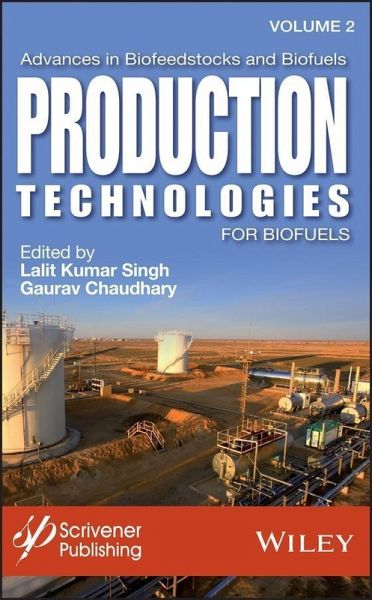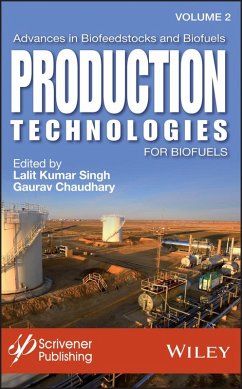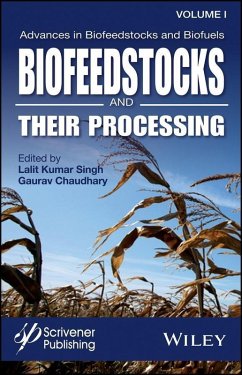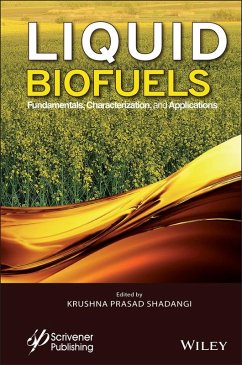
Advances in Biofeedstocks and Biofuels, Volume 2, Production Technologies for Biofuels (eBook, PDF)
Versandkostenfrei!
Sofort per Download lieferbar
197,99 €
inkl. MwSt.
Weitere Ausgaben:

PAYBACK Punkte
0 °P sammeln!
This second volume in the Advances in Biofeedstocks and Biofuels series focuses on the latest and most up-to-date technologies and processes involved in the production of biofuels. Biofuels production is one of the most extensively studied fields in the energy sector that can provide an alternative energy source and bring the energy industry closer to sustainability. Biomass-based fuel production, or renewable fuels, are becoming increasingly important as a potential solution for man-made climate change, depleted oil reserves, and the dangers involved with hydraulic fracturing (or "fracking")....
This second volume in the Advances in Biofeedstocks and Biofuels series focuses on the latest and most up-to-date technologies and processes involved in the production of biofuels. Biofuels production is one of the most extensively studied fields in the energy sector that can provide an alternative energy source and bring the energy industry closer to sustainability. Biomass-based fuel production, or renewable fuels, are becoming increasingly important as a potential solution for man-made climate change, depleted oil reserves, and the dangers involved with hydraulic fracturing (or "fracking"). The price of oil will always be volatile and changeable, and, as long as industry and private citizens around the world need energy, there will be a need for alternative energy sources. The area known as "biofuels and biofeedstocks" is one of the most important and quickly growing pieces of the "energy pie." Biofuels and biofeedstocks are constantly changing, and new processes are constantly being created, changed, and improved upon. The area is rapidly changing and always innovative. It is important, therefore, that books like the volumes in this series are published and the information widely disseminated to keep the industry informed of the state-of-the-art. This second volume in the Advances in Biofeedstocks and Biofuels series focuses on the production of biofuel, covering all of the major biofuels, such as biodiesel, biohydrogen, bioethanol, and others. This engaging text touches on all of the most important new processes and technologies, providing the most up-to-date coverage of the science available to industry. It is a must-have for any engineer or scientist working with biofuel technology.
Dieser Download kann aus rechtlichen Gründen nur mit Rechnungsadresse in A, B, BG, CY, CZ, D, DK, EW, E, FIN, F, GR, HR, H, IRL, I, LT, L, LR, M, NL, PL, P, R, S, SLO, SK ausgeliefert werden.













